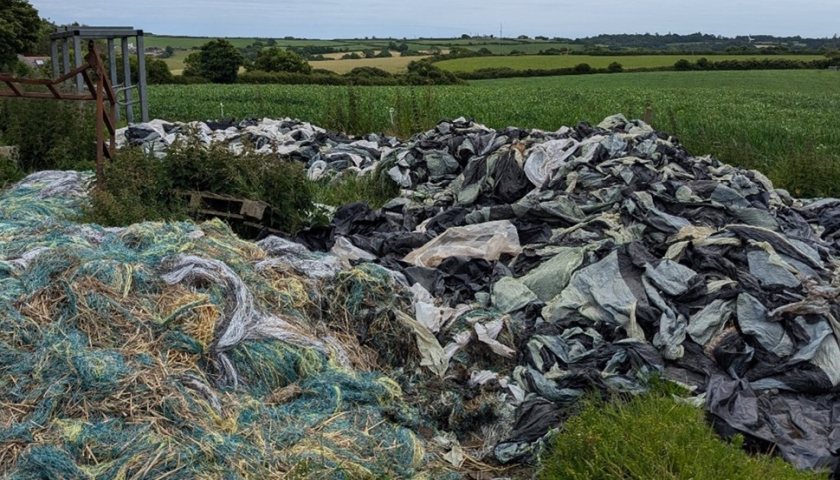
A group of farmers are looking to turn back the clock on microplastic pollution by wrapping hay bales in biodegradable twine instead of single-use plastics.
Farmers from 12 sites across Britain are wrapping bales using twine from sisal, a cactus-like plant that was widely used before plastic became popular.
Plastic net wrap is used on farms across the UK, but it sheds microplastics that pollute water and soil and end up getting eaten by livestock.
Researchers say is a major environmental issue, with the UK producing an estimated 135,000 tonnes of agricultural plastic waste annually.
Field lab coordinator Stuart Oates, who is taking part in the Innovative Farmers trial, farms cattle on Rosuick Organic Farm on Cornwall’s Lizard peninsula.
Experimenting with sisal, he aims to remove all plastics from his farm, and eventually replace fossil fuels entirely.
He said: “Plastic net wrap is a nightmare material. It’s almost impossible to cut off without small pieces falling into the hay, which then spread into the environment and get eaten by our animals.
“This can build up quickly as we process thousands of bales a year. The effects of ingesting microplastics on animal and human health is only now starting to be understood, and none of it is good."
Sisal requires few chemical inputs to grow, is easy to use in existing farm equipment and contains no toxic microplastics so can be safely composted.
The one-year trial will compare 5,000 bales, half using sisal twine and half in plastic net wrap, stored in barn conditions ranging from dry to exposed.
The bales will be lab-assessed next year in March and November for protein and sugar content, and to compare the dryness of the material under different conditions.
It is hoped sisal will keep the bales secure and dry, giving farmers a nature-friendly alternative that saves on vet bills and plastic tax.
Mr Oates added: “Our early experiments have shown that sisal is incredibly strong and quick to process, so it’s a win for us and the environment.
“Small steps can lead to huge change – we want to see if this can be applied on a larger scale, so we’re encouraging farmers to join the trial and see how sisal can work for them.”
The farmers are now planning how to scale up production, working with contractors to discuss costs.
If the advantages turn out to be significant, they say it could benefit all UK livestock farmers.
